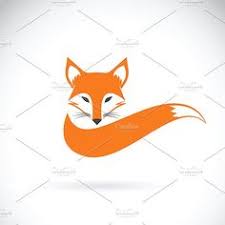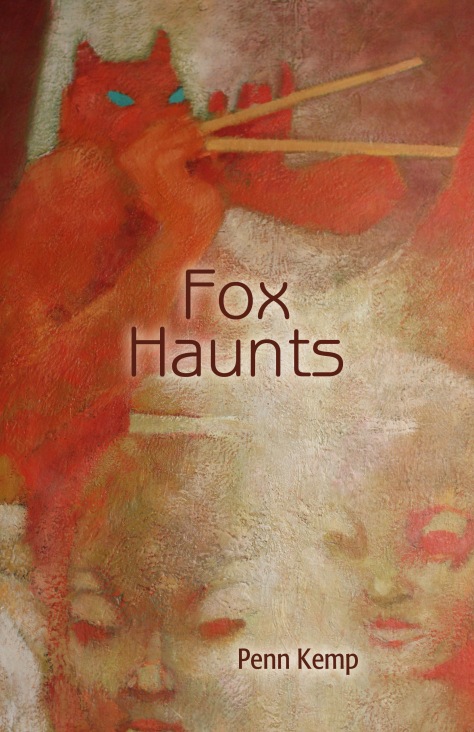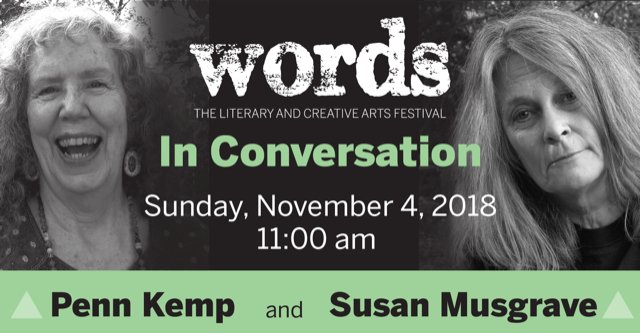Signed copies of Fox Haunts (Aeolus House, 2008) are available for $20 plus shipping.
Contact pennkemp@gmail.com.
What caught your imagination when you were young?
For me it was Foxes:
https://www.youtube.com/watch?v=E58HtvVZQXs*
Alice Major has written a lovely review on The League of Canadian Poets’ Review page: http://poets.ca/2019/01/21/review-insomnia-bird-by-kelly-shepherd-fox-haunts-by-penn-kemp/?fbclid=IwAR2A1attCS5ufAze9Xfrby4rhiaOfZw5PdxGGtLCSJm-d-rXkVz6RhkrIpU.
“In two recent collections, urban wildlife becomes a context for poets exploring the relationship of human and animal—a relationship that stretches back into myth-making and tale-telling, sideways into contemporary biology, and forward into a future of changing climate and anthropocentric landscapes. Each poet uses a different lens and tools to produce different but complementary books…
Penn Kemp’s Fox Haunts is also a book about how a wild animal can inhabit our urban lives and our imaginations. She also braids myth, science, literary allusions. But the voice here is different—more personal, less specific about a particular city inhabited by the fox and more intrigued with the dichotomous essence of the animal in our minds.
The poet’s “I” is established from at the beginning with an autobiographical poem about a child imagining the fox in her night-time bedroom—hungry, prowling:
… He was going to eat
me alive. Unless I played dead. I froze into the mattress.
The folds of the sheet turned marble. A frieze. The fox could
not smell out the stiff and still. I could sleep. Warily.
In subsequent poems, the fox often becomes ‘you’, a fellow creature to be addressed. But he remains always risky; even if you order a tame fox from the Internet at great expense, it will still be too skittish, too easily bored:
Better keep him busy, entertained or he’ll
run amok into your cushion, your couch,
your nightmare.
Fox is an animal reported on in New Scientist and “What I hear on CBC.” Kemp incorporates intriguing scraps of biology, like evidence that prey animals are gifted with the ability to forget the trauma of being chased, that foxes can see the earth’s magnetic field, that they may be adapting to city life to avoid hunters. Such information forms the context for arresting poetic imagery:
They look on the easy prey of pets, soft
and vulnerable bichon frises left outside
by themselves in the yard, those with not
defence but a petulant, startled bark …
… Given such ready supply
of sweet fat food, Fox laughs and moves in
The paradox—it may be easier and safer for the wild animal to live near humans—is one more riff on the idea of “wildness” that Kemp explores throughout the book. Fox is both hunter and the trapped beast; the untamed animal that wears “dainty gloves.” He is the outcast who takes back the territory of our backyards: “Kudos for taking back the night, Nox Fox.” He is the ‘rewilder’ who calls us to Be Wilder.
The poems are suffused with a tension between the real creature of our urban backyards and the creatures of our imagination, individual and collective. “Who can tell foxfire from phosphene?” the poet asks in “When Eyes Close,” an evocative short lyric about the patterns flickering in our brains when our eyes are closed. The poem’s 12 lines encapsulate one of the basic questions in philosophy: what is the relationship of the human brain to a real world?
“A blur of orange, a smudge or smear/Could manifest as creature any time, // Could grow into the idea of Fox …” she writes. Pattern becomes story, but it all starts from “what glimmers, eyes shut.”
The section “Little literary foxes” pursues the vulpine presence through folktale and Biblical narratives, literature and contemporary film.
“Aesop always gives Fox the finger/
shaking his index as reproof.”
This section is broad-ranging and stuffed with facts that are literary rather than biological: The word “shenanigans” may come from an old Gaelic word for fox. The constellation we call Canis Minor is, in Greek myth the Teumessian Fox which could never be caught. Artists from WB Yeats to Alice Munro to Kurosawa have some kind of fox relationship. However the section as a whole feels forced, as though the author has been working her way through a googled list of “fox in popular culture.” A number of the pieces don’t feel as though they have been transformed into poetry.
Nevertheless, Fox Haunts is a haunting brush with Fox’s vanishing tail. The human-animal connection is elusive, interstitial, “inner and outer, on / the verge.” And Kemp’s long career as a sound poet is apparent in the sonic delight of lines like:
Fox, you are epic,
You are epidemic,
You are anathema
You are a theme of tales…
Thanks to Alice Major and to the League of Poets for their Reviews section!
Well, this is fun! A cocktail, a fox tale…. I just saw this pairing: Fox Haunts, a cocktail… and a review! https://alllitup.ca/Blog/2018/Chappy-Hour-The-Quick-Red-Fox-Fox-Haunts
https://alllitup.ca/Blog/2018/Chappy-Hour-The-Quick-Red-Fox-Fox-Haunts#topofpostcontent
Other reviews of Fox Haunts are up on https://www.goodreads.com/book/show/39743870-fox-haunts and https://www.amazon.com/Fox-Haunts-Penn-Kemp/dp/1987872142.
A comprehensive and thoughtful review of Fox Haunts by Jennifer Wenn is up on http://tuckmagazine.com/2019/01/11/fox-haunts-penn-kemp-review/:
“Fox Haunts by Penn Kemp is a fascinating investigation of both the real animal and the figure of literature and myth. Kemp’s wordplay, wit and humour are on full display (for example, the whimsical suggestions for keeping foxes out of the yard in How To Repel the Urban Fox), but there are serious streams concerning adaptation, the collision of our civilisation with nature, and what Kemp terms rewilding. This is a captivating, multi-layered work, a demonstration of Kemp’s own precepts: “…Poetry allows for profusion//of voices and multilinear narratives//puns…” (Prompt).
Fox Haunts is divided into four sections: Family Fox-lore, The Urban Fox, Little Literary Foxes, and Dream Frequency. Family Fox-lore consists of two prefatory poems (A Child’s Garden Fox; and Steal, Stole, Stun), family memories that introduce main themes in the work. This starts with a literal collision between human technology (here, a car) and the wild (in the shape of a fox) and proceeds through imagination and a very real fox victim in the form of a stole.
The Urban Fox, Section Two, is the longest one and in many ways the heart of the work. We meet the foxes adapting to and claiming space within our cities, at first just via subtle indications like a rustle in a bush (Ghost Scents), glowing eyes at night (Night Vision; Avoidance Tactic), a slight odour left behind (Natural Magic) or tracks (What Matters; The Beauty of Snowy Waste and Noble Silence; Synecdoche). Later we discover Fox raiding “our pantry, our cat-//food, or cat perhaps” (Be Wilder), urinating on compost bins (Foul Play), raiding a henhouse (Foul Play), keeping everyone awake with screams and shrieks (What the Fox Says), grabbing the family dog by the leg (Foxes I Have Known, Rabid), carrying off defenceless bichons frisés (Why Here, Why Now) or depositing unmatched footwear inside via the cat door (Your Lair Is My Layer, Apparently). We perceive the world through Fox’s heightened senses: hearing (On the Nature of Intelligence; Pointers; Strategies, Night Vision); night sight (On the Nature of Intelligence; Night Vision); seeing the earth’s magnetic field (Strategies). A special mention of At the Moment of Equinox, a lovely hymn to balance and to nature, Fox’s realm.
Little Literary Foxes, Section Three, investigates literature, with touchpoints including Kurosawa (Inari, Kami of Foxes), Ovid (Song of His Origins), the Bible (Samson Agonistes, On Condemnation and Canticles), Milton (Samson Agonistes), Aesop (Fox Fable; Verse, Vice, Virtue), Yeats (Celtic Twilight), The Little Prince (Les Petits Amis), Kim Philby (“The Fox That Came to Stay”), Stephen King & Stanley Kubrick (Eye Shine), Alice Munro (Fair Play on Fur in F Sharp) and more.
In Dream Frequency, Section Four, Kemp, as she has in other works, explores her dreams. Here she finds herself haunted by Fox’s many aspects; a riff on the book title. As Kemp notes in her Introduction “Fox Haunts begins with a play on words. Who’s haunting whom?” We discover Fox and Kemp engaged in a variety of pas de deux: “…You wrap yourself round//in an ourobos of sleep and dream…” (Elementals); “Fox leads me a merry chase as will-of-wisp//streaks across western sky painting random//wisps along cirrus cloud…” (Avoidance Tactic); “We are entangled in tango, not//knowing the steps, not knowing//what trust is, leaning backward.” (Fox Trot); “…I burrow after you into teeming dark” (The Light Breach); “…I stand before you, astonished,//mouth so agape you might well leap down//the little red lane straight into bloodstream.” (Offer).
Throughout the entire work Fox is a liminal figure: “Between discrete realms of possibility” (By her wits, you shall know her); neither dog nor cat (Doubles); inner and outer (Doubles; How to Haunt); literal and figurative (On Condemnation and Canticles); dream and waking (O Fabulist).
An all-important boundary is that between hunter and hunted. When the former, Fox most often victimizes poor Rabbit (How to Hunt; Strategies; Synecdoche; Synopsis, Lady into Fox). Other prey include voles and moles (Night Vision; Strategies); crows (Pulling a Fast One); fowl generally (Pointers; Foul Play); mice (Pointers; On Condemnation and Canticles) and the aforementioned bichons frisés (Why Here, Why Now). In a nice touch, Kemp dreams that Fox and Rabbit are pals (Fox Play).
But while Fox is hunting to feed her family, our civilization all too often turns Fox into the victim, for far less essential reasons: hit by a car (A Child’s Garden Fox; Foxe’s Book of Martyrs, 1563 to the Present); killed for its fur (Steal, Stole, Stun; The Purchase; Fair Play on Fur in F Sharp); starving (“Helpless, Helpless, Helpless”); clubbed to death for raiding a henhouse in search of food (Foxe’s Book of Martyrs, 1563 to the Present); hunted for sport (Foxe’s Book of Martyrs, 1563 to the Present|); used as live torches (Song of His Origins; Samson Agonistes); pushed off a ledge five stories up (“The Fox That Came to Stay”).
Kemp’s prescription for restoring harmony is rewilding, adapting to and drawing from nature what we need, and perhaps have lost: “clarity and strength”, “surrender and acceptance”, “joy and creativity”, “initiation, inspiration”, “your broad view”, “your ground, your holy round” (At the Moment of Equinox). “Reclaim, rather,//and rewild, let’s agree.// //Yes, rewild us for we are//bewildered and beknighted.// //We are precariously tame and//dangerous.” (Be Wilder).
In the final poem, addressing Fox, Kemp expresses wishes and hopes we all could share: “On your own, you’ll do just fine as long//as we humans don’t interfere with your//livelihood, your livelong neighbourhood.// //May you be freed from old mythologies//that call you trickster, demon temptress,//ghost and fraudster. May you run free.”
Fox Haunts is a beautiful, thought-provoking, multi-level meditation, and a heartfelt plea for a reconfiguration of our spirits and a new relationship with the world around us.”
Jennifer Wenn is a trans-identified writer from London, Ontario. In addition to her day job as a Systems Analyst, she has written From Adversity to Accomplishment, a family and social history; and published poetry in Tuck Magazine, Synaeresis, Wordsfestzine and the anthology Things That Matter. She is also the proud parent of two adult children.

Two beautiful reviews Fox Haunts came in
one after the other
on little fox feet from the Okanagan.
How could I not share them with you?

Fox Haunts. Poems by Penn Kemp. Aeolus House, 2018. 97 pages. $20.
Review by Bill Arnott
First time I saw a fox I was atop an open-air double decker, trundling along rugged coast, intermittently thrashed by leafy birch as though in a weaving Finnish sauna. I was compelled to shield my eyes – the same reaction as when something’s beyond comprehension, available only to the worthy. In fact it was present for everyone. Laid bare, unabashedly rich in beauty and lore. A slender, russet blonde animal, taller than I imagined. Regal. Same as when I met Penn Kemp. Somewhere a fellow trickster – Loki, Kokopelli perhaps, danced a gleeful jig, as I carried a newly signed Fox Haunts to my semi-detached lair.
Adaptation runs through this London Laureate’s new poems in darting twists, flight from imagined hunter’s horn. At times furtive, dreamily camouflaged, or bounding in plain sight, Kemp’s artistry enraptures. We join Penn in childhood, parents fused into fox memories with “A Child’s Garden Fox.”
“Sleepy, sleeping in my mother’s lap. Nestled. / When. A fox ran in front of the car. And / was transfixed by the headlights. Ran and / ran in front of the car but could not escape”
In red hued monochrome we glimpse dead fur and living banshees in “Steal, Stole, Stun.”
“The dried heads of black fox hung / from my grandmother’s stole as if / ready to strike. Dead flat button jet / eyes shut tight to their own secret”
And with fireside ease we move through seasons, geography and myth, playful “Glow” perching us parrot-like on the writer’s shoulder, experiencing evolving words while peering real-time into her thoughts.
“That narrow snout surfaces to / figure your next ploy, asking / curiously: ‘Who do you serve?’ // The essential question mocks / my reply. The whole, of course.”
Reading Kemp’s work I feel nestled in a sidecar affixed to the master’s motorbike, confident in her route, at times in conversation, storytelling, or akin to a lie-down on a therapist’s sofa. This book can leave one simultaneously inspired and intimidated, seeing genius expand exponentially with time.
Writing this I’m at Penn’s desk, at least the one she left for me to use in Vernon, BC. Beside me Fox Haunts lies curled and content, in its rightful place atop the rest. Through a broad bay window a few last leaves cling in vixen colours and from “Entertaining the Fox” the author’s words linger. “May you be translated. And remain / entirely your own.”
poetscorner.ca/team/

Review by Fern G. Z. Carr
Penn Kemp’s Fox Haunts (Aeolus House, 2018) is an intriguing exploration of all that is vulpine – a quest to define the quintessential nature of the fox. In keeping with its elusive nature, her portrayal of this creature is fluid and dynamic.
The title, Fox Haunts, is an apt play on words. This is not only a work of place but a work that is indeed haunting – whether by its mastery of surreal imagery such as the reverie of miniature firefly-like foxes or the cruel reality of rabies.
Poems are contrasting yet complementary: predation vs. elegance (“sharp white teeth” / “Vixen slips off her black gloves”) and science vs. folklore (“The earth’s magnetic field serves as a reference guide for our Fox” / “foxglove holds the power of opposites”).
After having examined the vicissitudes and psyche of the fox, Kemp ultimately concludes that a fox is but a fox. Her final poem in this collection is essentially a benediction with a proviso that the species will be fine as long it can be freed from pejorative mythologies and human interference – a caveat reflecting the sensibilities of the enchanting poems in this book.
www.ferngzcarr.com
Stevie Howell’s review is up on https://quillandquire.com/review/fox-haunts/.
“Penn Kemp’s Fox Haunts is a collection of poems about an enduring character in fables and folklore: the fox. Kemp is enchanted with her subject matter, and there are many playful moments.”
Stanley Fefferman‘s review is up on http://poets.ca/2018/08/10/review-fox-haunts-by-penn-kemp/ and http://opusonereview.com/?p=4786.
*Video of my reading by Dennis Siren.
43.017176
-81.276518








 The festival features emerging and established London writers and some of Canada’s most celebrated authors, poets and journalists reading and talking about their work and leading workshops on a variety of topics.
The festival features emerging and established London writers and some of Canada’s most celebrated authors, poets and journalists reading and talking about their work and leading workshops on a variety of topics.



 0msM2K
0msM2K SUNDAY
SUNDAY
